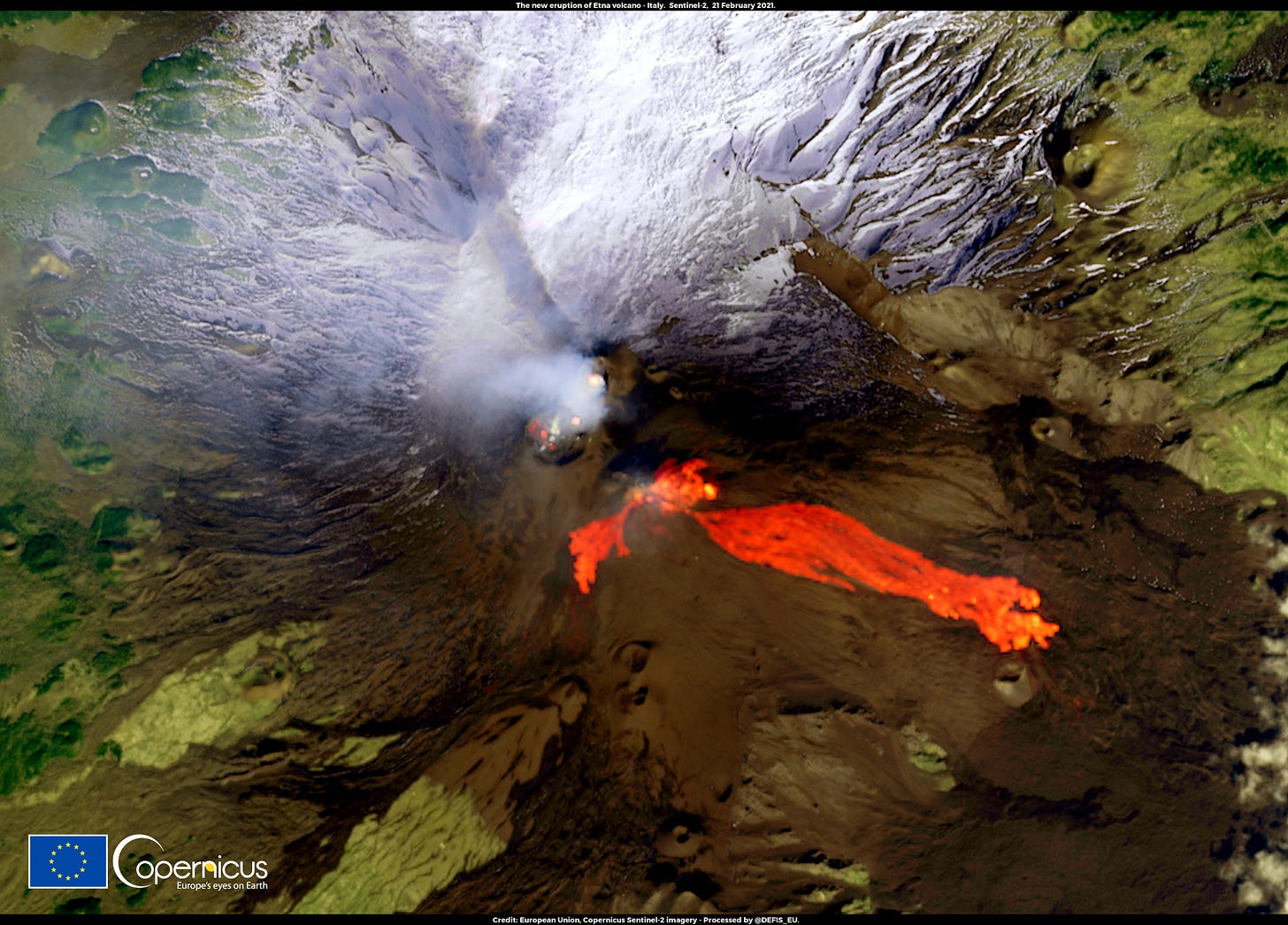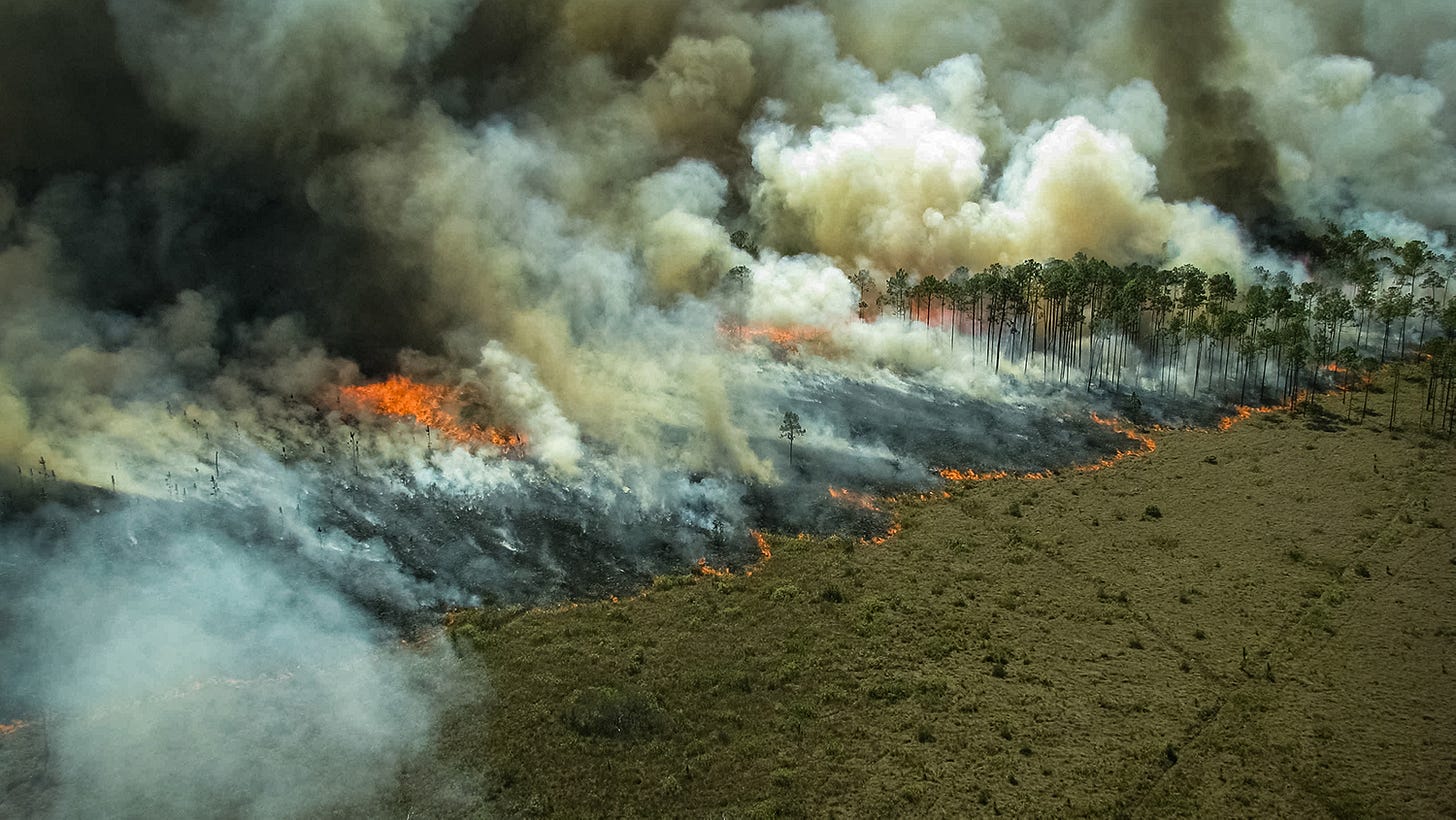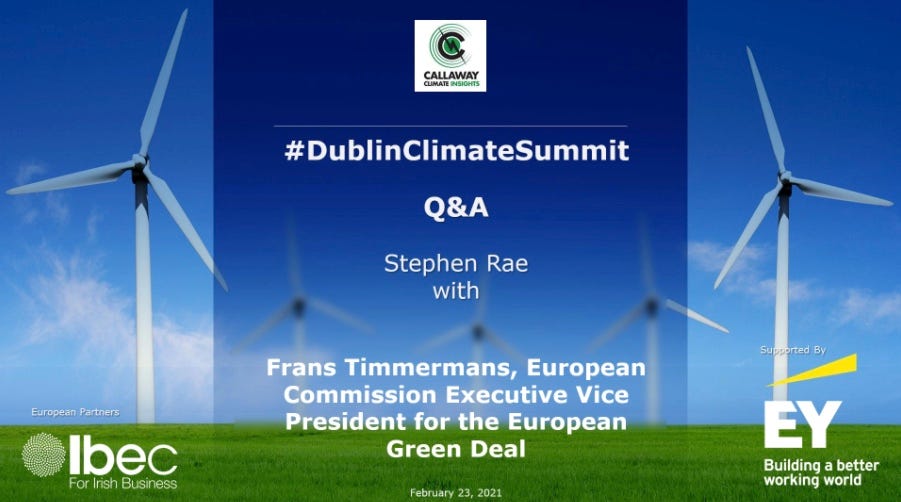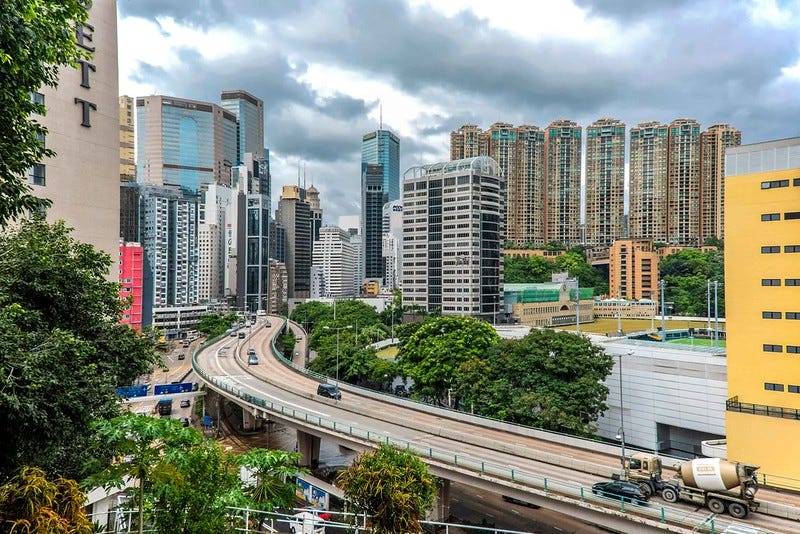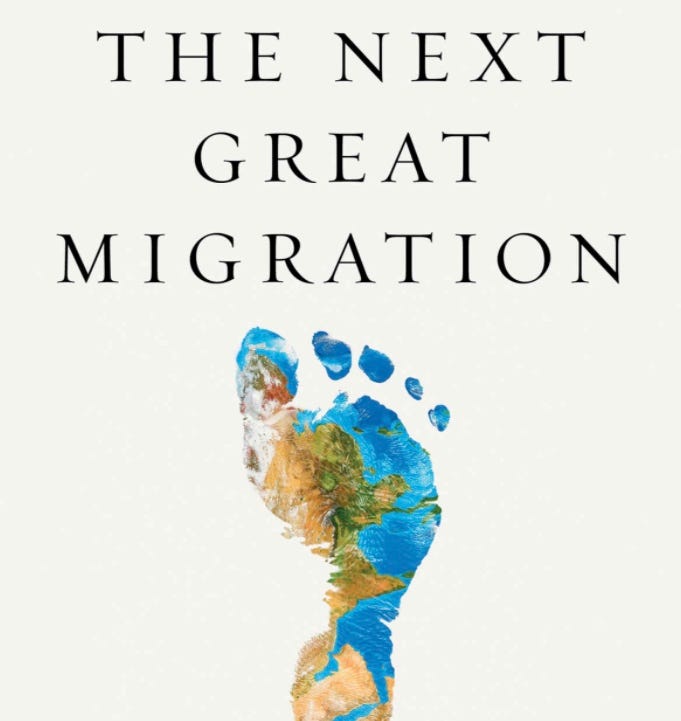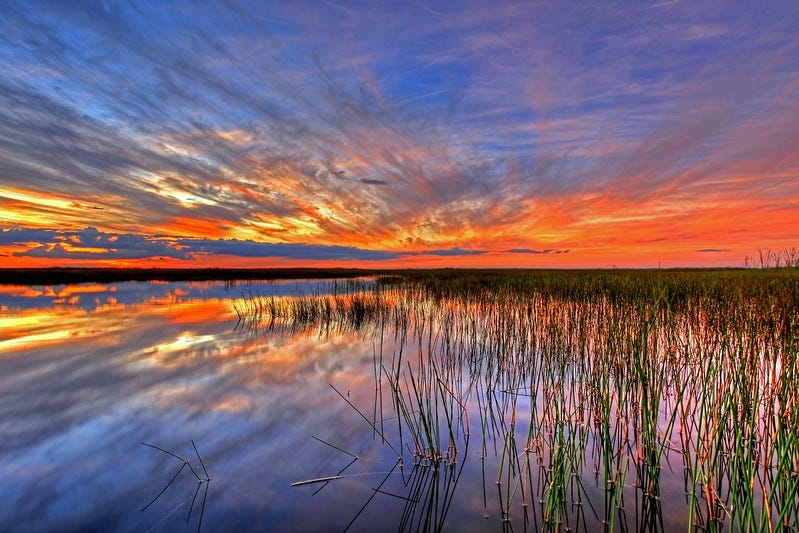Volcanic week for ESG stocks; and Latin America's growing Paris problem
Welcome to Callaway Climate Insights. We have the recording from our Frans Timmermans event below. Please enjoy and share.
Mount Etna’s erupted more than 200 times in the last 3,500 years, but there’s no truth to the rumor its blasts coincide with global financial crises. So I would be wary about talk this week that the decline in clean energy and electric vehicle shares is anything other than a healthy correction.
Bad news tied to SPACs, Lucid Motors, and Workhorse Group (WKHS), coupled with pushback on Wall Street, and in some cases among central bankers, toward the speed of transition from fossil fuels sent ESG stocks tumbling, but along with the rest of the markets.
The iShares Global Clean Energy ETF (ICLN) is down more than 10% in the past four days and electric vehicle stocks such as Tesla (TSLA), Nio (NIU) and Lordstown Motors (RIDE) are all lower as well.
A JP Morgan note Wednesday added fuel to the fire by suggesting that the ESG stock rally of the past year was simply part of a “reset agenda” created when Covid hit as investors imagined a clean new world to come. The note said now that vaccines are helping end the Covid era, money will shift out of clean energy and back into hard-hit fossil fuels, airlines, and travel/hospitality sectors.
The incredible rally in EV stocks and the SPAC surge in the past few months was an obvious bubble that needed to deflate, and in that context investors should be consoled that the deflation is occurring as part of a larger market correction.
There will be more losers than winners in the march toward transition to clean energy. But the march itself hasn’t ended. And the $51 billion that went into ESG funds last year isn’t going to flee because of a couple busted stock deals. The end of the Covid era is good news for the economy, and investors should consider that as they take stock of more reasonable valuations provided by this volcanic week in markets.
More insights below. . . .
Don’t forget to contact me directly if you have suggestions or ideas at dcallaway@callawayclimateinsights.com.
Latin America is falling behind on its Paris goals. What comes next?
. . . . Latin America is falling behind on its Paris goals, as larger countries such as Argentina, Brazil and Mexico are crippled by domestic politics and weak governments, writes Michael Molinski. While some small countries have earned climate stripes for their work with renewable energy, their progress is dwarfed by the rising emissions of their larger neighbors. Only strong international action can help avert a catastrophe.
The biggest problems are in Brazil and Argentina, which continue to ignore rules against deforestation and, in some cases, to allow criminal activity to go on untouched by police. Read our two-part series about the destruction of the Amazon.
“It will be interesting to see if President Joe Biden exercises pressure this year on the Bolsonaro administration to enforce rules against deforestation,” said Rittl. “Brazil has applied for membership to the Organization for Economic Cooperation and Development. Biden, theoretically, could block Brazil’s membership.”. . .
EU notebook: Highlights and recording from our Dublin Climate Summit
. . . . We’re pleased to provide the full recording from our inaugural Dublin Climate Summit on Tuesday, for anyone who wasn’t able to attend.
In today’s European Notebook, Vish Gain in Dublin recounts the best quotes from each of our speakers, including Irish Environment Minister Eamon Ryan, EY Global Sustainability Vice Chair Steve Varley, and EU Climate Commissioner Frans Timmermans. In keeping with the Irish spirit of the event, and in describing the goals of Europe to transition to a cleaner economy, Timmermans famously recounted the words of an unnamed Irish fisherman: “Fail we may, sail we must.”. . .
ZEUS: Hong Kong's ESG plan, a talk with Elsa Pau
. . . . As the world waits for China's next climate move, one Hong Kong entrepreneur is preparing for the ESG revolution, writes David Callaway. Financial publisher and family officer adviser Elsa Pau isn’t bullish on Hong Kong’s own green future, but she’s sufficiently excited enough about China’s prospects to start a new fintech portal to screen ESG funds. BlueOnion has all the performance stats most screeners do but adds a dash of qualitative data, including the relative temperature of each fund it tracks to the Paris Accord. Pau says Asia is ripe for more transparency in green funds after too much greenwashing in the industry, and tells why Larry Fink gives her a headache. (Note to readers: We are running the Zeus column again today after a busted link yesterday might have made it difficult to access). . . .
Book review: The Next Great Migration, by Sonia Shah
. . . . On the list of international security threats, migration is near the top. With as many as 200 million people expected to be climate refugees in coming decades, most political discussions deal with “the problem” of migration, writes Jack Hamilton, in his review of Sonia Shah’s new book, The Next Great Migration. But Shah argues that we’re looking at migration through the wrong lens, as a condemnation of “the other.” Instead, we should see it as a natural occurrence among all living things. And that legal and safe pathways must be created, as walls will not stop what is coming.
Shah gets us to rethink human migration by making a larger point. Plants, animals, and people have been moving since time immemorial. It is a law of nature, not an anomaly.
“Over the past handful of years,” Shah writes, “as the climate’s grip on how we move has become increasingly apparent, new evidence of the centrality of migration in our biology and history has emerged.”. . .
Data driven: Most U.S. voters want clean energy, even in swing states
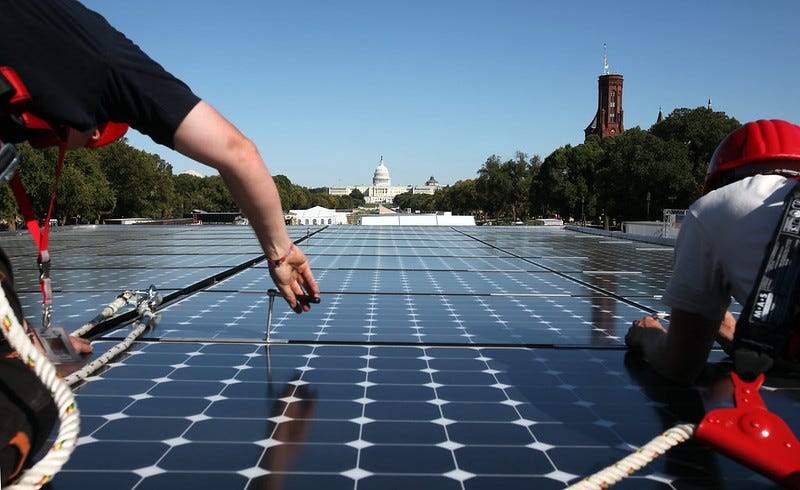
. . . . Some 63% of U.S. voters support a government mandate for 100% clean electricity by 2035, according to a February 2021 poll conducted by the Evergreen Collaborative and Data for Progress. Not only do a majority of voters support transitioning to renewables, the poll noted that swing states all exhibited support for switching to clean energy as well. Read more about why advocating for clean energy is becoming more viable as a political platform in the United States. . . .
News briefs: Postal Service shocks with tiny EV commitment
Editor’s picks:
Sparks fly as USPS commits to only 10% EV fleet
Power storage pioneer nabs $50 million funding bonanza
Iconic NYC skyscraper reaches for renewables
Solar panels in space are no longer pie in the sky
Latest findings: New research, studies and projects
Forgotten fishes
Freshwater fisheries provide the main source of protein for 200 million people across Asia, Africa and South America, as well as jobs and livelihoods for 60 million people, according to the WWF. Healthy freshwater fish stocks also sustain two huge global industries: recreational fishing generates over $100 billion annually, while aquarium fishes are the world’s most popular pets and drive a global trade worth up to $30 billion. A new report, World’s Forgotten Fishes, published by 16 global conservation organizations, says as many as three freshwater fish already are threatened with extinction. “Nowhere is the world’s nature crisis more acute than in our rivers, lakes and wetlands, and the clearest indicator of the damage we are doing is the rapid decline in freshwater fish populations. They are the aquatic version of the canary in the coal mine, and we must heed the warning,” said Stuart Orr, WWF global freshwater lead. “Despite their importance to local communities and indigenous people across the globe, freshwater fish are invariably forgotten and not factored into development decisions about hydropower dams or water use or building on floodplains. Freshwater fish matter to the health of people and the freshwater ecosystems that all people and all life on land depend on.”
More of the latest research:
Words to live by:
The cost of our success is the exhaustion of natural resources, leading to energy crises, climate change, pollution, and the destruction of our habitat. If you exhaust natural resources, there will be nothing left for your children. — Nobel Prize-winning biochemist Christian de Duve


